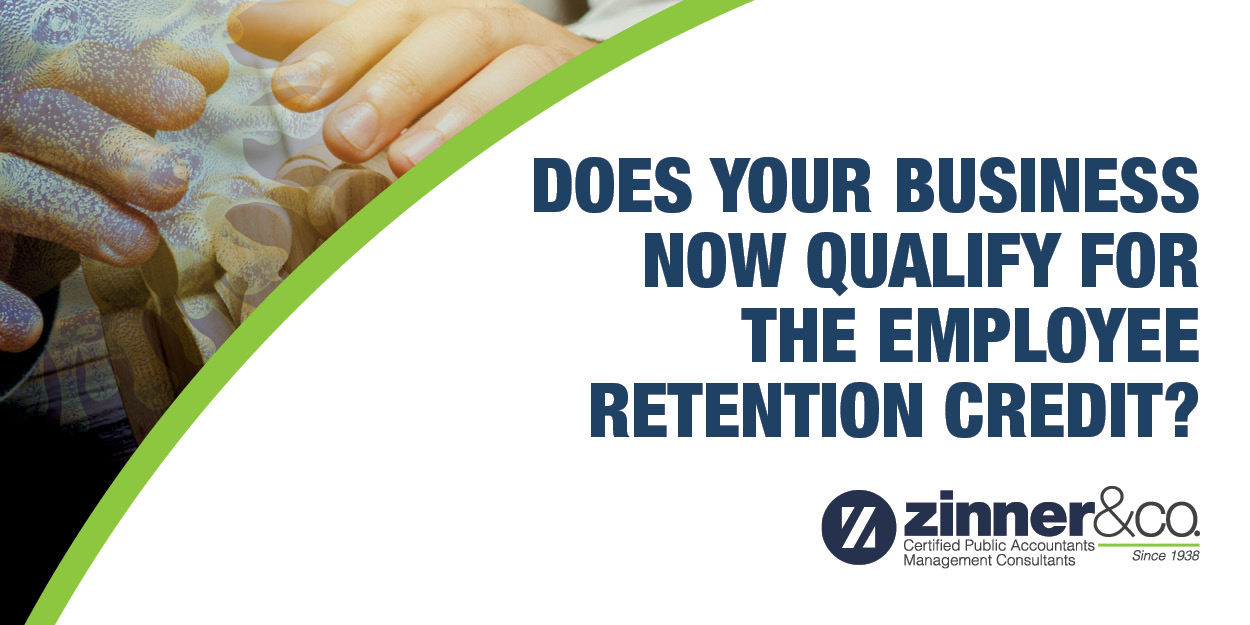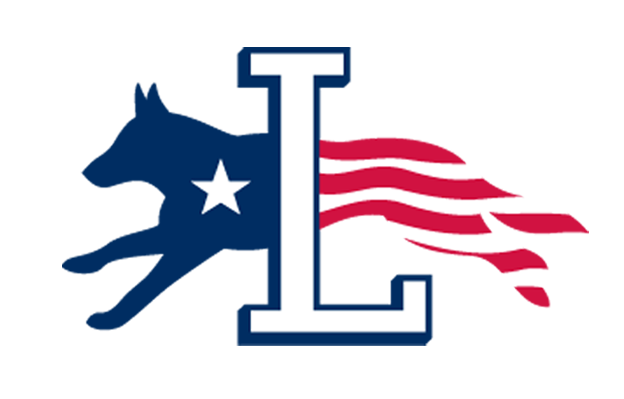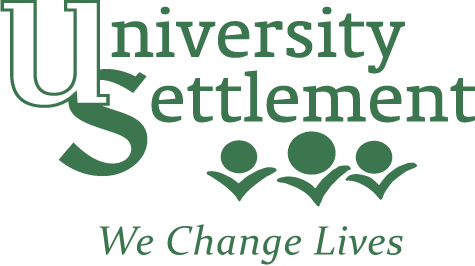The Employee Retention Credit is part of the reconstituted Paycheck Protection Program and is designed to help businesses who have been adversely affected by the COVID-19 pandemic retain their employees.
Reporting of Other Government Payments
Zinner & Co. Tax Team Bureau of Worker's Compensation , income tax , ohio , Department of Job and Family Services , Unemployment BenefitsMany businesses who received Ohio Bureau of Worker Compensation rebate or dividend checks during 2020 recently received a letter from the Ohio Bureau of Workers Compensation requesting that they provide the BWC a completed Form W-9 to provide the information needed to complete the IRS tax statement Form 1099-G, which reports taxable Government Payments. This action also indicates that these rebate payments could potentially be subject to both Ohio state income tax and Commercial Activity Tax.
On Dec. 21, Congress passed the long awaited $900 billion COVID stimulus deal. The legislation called, the Consolidated Appropriations Act, 2021, is expected to be quickly signed by President Trump. It is intended to help families and small businesses that are continuing to be adversely impacted by the COVID-19 pandemic.
Lorenzo’s Dog Training Team Helps Bring Pets and Owners Closer Together
Zinner & Co. Zinner & Co. , Lorenzo's Dog TrainingFrom an early age, Lorenzo Miller realized he loved dogs.
Growing up in the inner city, the 6-year-old saw the stray dogs in his neighborhood knocking over garbage cans looking for food and wanted to help them. Soon, he began to bring the dogs into his home, but was not allowed to keep them. He had to smuggle them into his bedroom and trained them, knowing they had to be quiet in order to keep them hidden.
New 1099-NEC Form For Nonemployee Compensation
Zinner & Co. Tax Team Taxes - Planning, Rules and Returns , Taxes - Individual , tax , taxes , income tax , tax avoidanceThe PATH Act accelerated the due date for filing Form 1099 that includes nonemployee compensation (NEC) from February 28 to January 31 and eliminated the automatic 30-day extension for forms that include NEC. Starting with tax year 2020, taxpayers should use Form 1099-NEC to report nonemployee compensation.
Form 1099-NEC replaces the use of box 7 on Form 1099-MISC from previous years. Other uses of 1099-MISC have not changed and will continue to be used for common payments such as rent and payments to an attorney.
Zinner & Co. is pleased to continue its support and sponsorship of the Magic of LightsTM, being held at the Cuyahoga County Fairgrounds in Berea, Ohio from November 25, 2020 through January 2, 2021 between the hours of 5:30 and 10 p.m.
Magic of LightsTM is a yearly tradition for many Northeast Ohio families, who marvel at thousands of decorative displays and interactive holiday lights.
The event is a dazzling, drive-through holiday lights experience featuring favorite holiday scenes and characters of the season using the latest LED technology and digital animations.
For the past 94 years, University Settlement, a 501(c)(3) nonprofit, has provided much needed social services to the residents of the Broadway-Slavic Village neighborhood.
They have been the main social services provider to the community and have followed their mission: To offer the individuals and families they serve the resources by which they can learn, grow and thrive.
Distribution of $1.3 Billion in OBWC Rebates Set To Begin
Zinner & Co. Tax Team Bureau of Worker's Compensation , The CARES ActJust over $1.3 billion in Ohio Bureau of Worker Compensation rebates will be mailed out in late October.
The news comes as many businesses are struggling to recover from the coronavirus pandemic and the related shutdown issued by Ohio Gov. Mike DeWine earlier this year.
Over the past month, many of our clients and referral sources have asked if we have re-opened our office.
The short answer is that is yes, we are open for business and available to meet with our clients. The longer answer to the question addresses many other issues including our greatest resource - our people.
When the pandemic quarantine began in mid-March, Zinner & Co. quickly pivoted to continue to address our client needs, frankly, at the busiest time of the year for our tax practice. We sent our staff home and connected everyone through secured methods to our office servers. We even found a way to keep our tax season interns on staff while many other firms discontinued all internship programs at time.
Paycheck Protection Program Loan Forgiveness - But at what Cost?
Robin Baum, CPA, Managing Partner Robin Baum , Coronavirus , COVID-19 , Paycheck Protection ProgramOver the past few weeks, some of our local commercial lenders have slowly begun to open their online portals to allow those businesses who received Paycheck Protection Program (PPP) Loans to file their applications to obtain forgiveness of the debt related to qualified expenses.
While the loan application process was a heated fury of business owners rushing to obtain the much needed funds so that they could continue to employ and pay their employees, retain health insurance coverage and pay their rent, the loan forgiveness process seems to be occurring at much less of an accelerated rate. Although credit should go to the Small Business Administration for issuing some guidance to the lenders who have extended these loans, not all the related questions have been answered.
About Us

Since 1938, Zinner has counseled individuals and businesses from start-up to succession. At Zinner, we strive to ensure we understand your business and recognize threats that could impact your financial situation.
Recent Blog Posts
Categories
- 1031 Exchange (2)
- 401k (2)
- 529 plan (4)
- ABLE Act (1)
- account systems (3)
- accounting (8)
- Affordable Care Act (8)
- alimony (2)
- American Rescue Plan Act (1)
- Ask the Expert (5)
- Audit and Assurance Department (13)
- audits (8)
- Bank Secrecy Act (1)
- banks (1)
- Barbara Theofilos (6)
- Beneficial Ownership Information (1)
- Bitcoin (1)
- block chain (2)
- BOI (3)
- Bookkeeping (1)
- Brett W. Neate (28)
- budgets (1)
- Bureau of Worker's Compensation (12)
- Business - Management, Issues & Concerns (51)
- business income deduction (3)
- business succession (7)
- business travel expense (3)
- business valuation (5)
- capital gains (2)
- careers (7)
- cash flow (2)
- Charitable Donations (1)
- Child Tax Credit (2)
- Chris Valponi (8)
- City of Cleveland (1)
- Cleveland COVID-19 Rapid Response Fund (1)
- Cleveland Rape Crisis Center (2)
- college (3)
- Community (24)
- Compliance (1)
- Coronavirus (24)
- Corporate Transparency Act (1)
- COVID-19 (30)
- Credit card fraud (5)
- credit reporting (2)
- cryptocurrency (2)
- CTA (2)
- cybersecurity (17)
- dead (1)
- DeAnna Alger (6)
- death (2)
- debt (4)
- deductions (14)
- Deferring Tax Payments (4)
- Department of Job and Family Services (2)
- depreciation (2)
- Digital Tax Payment (3)
- divorce (4)
- DOMA (3)
- Economic Impact Payments (2)
- Economic Injury Disaster Loan (4)
- education (8)
- EIDL (1)
- electronic filing (4)
- Electronic Tax Payments (3)
- Emergency Working Capital Program (1)
- employee benefit plan auditor (1)
- Employee Leave (3)
- Employee or Independent Contractor (6)
- Employee Retention Credit (3)
- employment (2)
- ERC (3)
- Eric James (8)
- Estates, Gifts & Trusts (48)
- expenses (5)
- Families First Coronavirus Response Act (2)
- FASB (1)
- FBAR (1)
- FDIC coverage (1)
- Federal Assistance (4)
- filing (3)
- financial planning (8)
- Financial Planning - College (9)
- financing (3)
- Firm news (119)
- first responders (1)
- FMLA (1)
- foreign assets (3)
- fraud (38)
- FSA (1)
- fundraising (9)
- Gabe Adler (1)
- gift tax (5)
- HDHP (2)
- health care (3)
- home (2)
- home office (1)
- Howard Kass (2)
- HRA (1)
- HSA (5)
- identity theft (34)
- income (1)
- income tax (58)
- independent contractor (1)
- Inflation (1)
- Insurance (7)
- internal control (4)
- international (2)
- Intuit (1)
- investments (4)
- IRS (91)
- jobs (5)
- John Husted (1)
- K-1 (1)
- Laura Haines (3)
- Layoff (2)
- Layoffs (1)
- leadership (3)
- lease accounting standards (1)
- life insurance (1)
- LLC (3)
- Loans (2)
- longevity income annuities (1)
- Lorenzo's Dog Training (1)
- Magic of Lights (1)
- management advisory (3)
- manufacturing (2)
- Matt Szydlowski (3)
- medical (7)
- Medicare (2)
- mergers and acquisitions (1)
- Mike DeWine (2)
- Millennial Concepts (2)
- minimum wage (1)
- NAIOP (1)
- National Defense Act (1)
- non-profit reporting (10)
- non-profits (38)
- not-for-profit (26)
- OATC (1)
- OBBB (3)
- ODJFS (1)
- office (1)
- ohio (13)
- Ohio Accounting Talent Coalition (1)
- Ohio business owners (18)
- Ohio Department of Jobs and Family Services (4)
- Ohio Department of Taxation (7)
- Ohio Incumbent Workforce Training Voucher Program (1)
- Ohio Society of Certified Public Accountants (1)
- One Big Beautiful Bill (7)
- Online Tax Payment (4)
- Operations (2)
- OPERS (1)
- OSCPA (1)
- owners of foreign entities (1)
- partnerships (5)
- passwords (1)
- Paycheck Protection Program (9)
- payroll (8)
- penalties (3)
- pension (2)
- personal finance (2)
- planning (4)
- ppp (7)
- Productivity (5)
- Qualified Business Income (1)
- quickbooks (10)
- real estate (14)
- record retention (2)
- records (2)
- Reporting (1)
- Republican National Convention (1)
- Retirement Planning & IRAs (54)
- Richard Huszai, CPA (5)
- RITA (1)
- Robin Baum (6)
- RRF (1)
- S Corporation (1)
- SALT (8)
- SBA (8)
- scams (14)
- SECURE 2.0 Act (1)
- security (6)
- SharedWorks (1)
- Shutdown (3)
- Silver Linings (9)
- simplified employee pension (1)
- Small Business (5)
- SMB (12)
- Social Media (1)
- social security (4)
- Speaker Series (2)
- spouse (1)
- start ups (8)
- Stay at Home Order (3)
- Steven Mnuchin (1)
- Sue Krantz (6)
- SVOG (1)
- tangible property (1)
- tax (27)
- tax avoidance (12)
- Tax Credit (7)
- Tax Cuts and Jobs Act of 2017 (31)
- Tax Exempt (1)
- Tax Holiday (1)
- Tax Interns (2)
- tax services (28)
- taxes (45)
- Taxes - Corporate & Business (106)
- Taxes - Individual (122)
- Taxes - Planning, Rules and Returns (195)
- TechCred (1)
- technology (8)
- The CARES Act (6)
- The SOURCE (1)
- tiag (3)
- transaction advisory (2)
- Treasury Department (5)
- Trump Account (1)
- tuition (3)
- U.S. Department of the Treasury (1)
- U.S. Small Business Administration (6)
- Unclaimed Funds (1)
- Unemployment Benefits (4)
- Unemployment Insurance (1)
- withdrawls (2)
- withholding (6)
- Workers Comp Billing Changes (1)
- Zinner & Co. (35)
- Zinner News (32)









